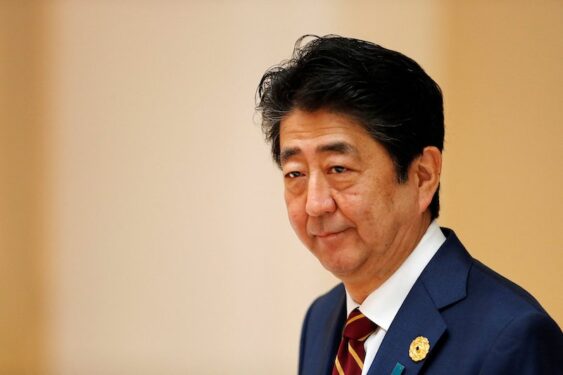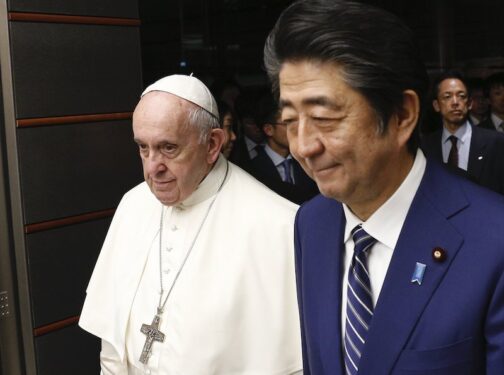By Nirmala Carvalho
TOKYO (Crux) — After a gunman fatally shot former Japanese prime minister Shinzo Abe during a campaign rally in western Japan on Friday, July 8, Archbishop Isao Kikuchi of Tokyo lamented that “violence kills democracy.”

Abe was campaigning for local candidates in Nara when a person shot him in the back at close range with what news reports have described as a homemade gun. He was airlifted to a hospital but officials said he was not breathing and his heart had stopped.
The hospital confirmed his death. Police arrested the suspected gunman at the scene.
Prime Minister Fumio Kishida and his cabinet ministers hastily returned to Tokyo from campaign events around the country after the shooting, which Kishida called “dastardly and barbaric.”
Abe is the longest-serving prime minister in Japan’s history, having been in office twice, first from 2006-2007 and then from 2012-2020. A member of the conservative Liberal Democratic Party, he was controversial for his views on re-militarizing Japan and his revisionist views on Japan’s actions during World War II.
Archbishop Kikuchi told Crux he was “deeply saddened and shocked to hear the news of the attack on the former prime minister of Japan, Mr. Shinzo Abe.”

The archbishop also deplored the fact that political violence might be happening in Japan.
“After more than 70 years since the present constitution was promulgated in 1947, with a strong desire to establish peace, the principle of democracy based on freedom of speech and vote is supposed to be the core value of this society,” he said.
“There are differences of opinion existing in the society over all kinds of issues and political antagonism among politicians made them fight each other. However this fight has been done by debate and not by violence,” Archbishop Kikuchi continued.
“Violence kills democracy. Violence kills freedom. Violence kills justice. The differences of political opinion have to be solved through dialogue and voting in freedom. No one has the right to use violence to silence opposition. Only dialogue provides a real solution to realize justice and peace,” he told Crux.
Opposition leaders in Japan also condemned the attack as a challenge to Japan’s democracy.
When he resigned as prime minister in 2020, Abe said he had a recurrence of the ulcerative colitis he’d had since he was a teenager.
He told reporters at the time that it was “gut-wrenching” to leave many of his goals unfinished. He spoke of his failure to resolve the issue of Japanese people who were abducted years ago by North Korea, a territorial dispute with Russia, and a revision of Japan’s war-renouncing constitution.
